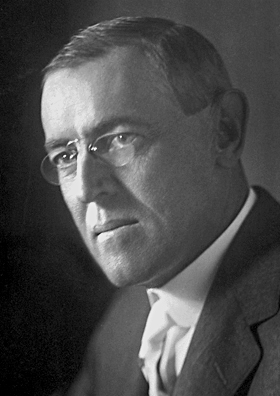Public administration
Public administration is the implementation of government policy and an academic discipline that studies this implementation and prepares civil servants for working in the public service. As a "field of inquiry with a diverse scope," its fundamental goal is to advance management and policies so that government can function. Some of the various definitions which have been offered for the term are: "the management of public programs"; the "translation of politics into the reality that citizens see every day"; and "the study of government decision making, the analysis of the policies themselves, the various inputs that have produced them, and the inputs necessary to produce alternative policies."
History[edit | edit source]
Public administration has ancient origins, dating back to the Sumerians and Egyptians. The Roman Empire also had a sophisticated system of public administration. In the modern era, the field began to take shape in the late 19th century with the work of Woodrow Wilson, who is often considered the father of public administration in the United States. His seminal essay, "The Study of Administration," called for a science of administration and laid the groundwork for the field.
Theories of Public Administration[edit | edit source]
Public administration theory is the amalgamation of history, organizational theory, social theory, political theory, and related studies focused on the meanings, structures, and functions of public service in all its forms.
Classical Public Administration Theory[edit | edit source]
Classical public administration theory is based on the idea that there is a single, best way to organize and manage public organizations. This theory is closely associated with the work of Max Weber, who developed the concept of bureaucracy, and Frederick Taylor, who introduced scientific management.
New Public Management[edit | edit source]
New Public Management (NPM) is a management philosophy used by governments since the 1980s to modernize the public sector. NPM advocates for the use of private sector management techniques in the public sector, emphasizing efficiency, output measurement, and customer service.
Public Value Theory[edit | edit source]
Public value theory, developed by Mark H. Moore, argues that public managers should focus on creating value for the public, rather than merely implementing policies. This theory emphasizes the role of public managers in shaping and responding to the public's needs and preferences.
Functions of Public Administration[edit | edit source]
Public administration encompasses a wide range of functions, including:
- Policy formulation and implementation
- Budgeting and financial management
- Human resource management
- Public relations and communication
- Regulatory enforcement
- Service delivery
Education and Training[edit | edit source]
Public administration education typically includes coursework in public policy, management, ethics, and law. Many universities offer degrees in public administration, such as the Master of Public Administration (MPA) and Doctor of Public Administration (DPA).
Related Fields[edit | edit source]
Public administration is closely related to several other fields, including political science, sociology, economics, and law. It also overlaps with public policy, which focuses more on the analysis and creation of policies.
See Also[edit | edit source]
References[edit | edit source]
External Links[edit | edit source]
Transform your life with W8MD's budget GLP1 injections from $125 and up biweekly
W8MD offers a medical weight loss program NYC and a clinic to lose weight in Philadelphia. Our W8MD's physician supervised medical weight loss centers in NYC provides expert medical guidance, and offers telemedicine options for convenience.
Why choose W8MD?
- Comprehensive care with FDA-approved weight loss medications including:
- loss injections in NYC both generic and brand names:
- weight loss medications including Phentermine, Qsymia, Contrave, Diethylpropion etc.
- Accept most insurances for visits or discounted self pay cost.
- Generic weight loss injections starting from just $125.00 for the starting dose
- In person weight loss NYC and telemedicine medical weight loss options in New York city available
Book Your Appointment
Start your NYC weight loss journey today at our NYC medical weight loss, and Philadelphia and visit Philadelphia medical weight loss Call (718)946-5500 for NY and 215 676 2334 for PA
Search WikiMD
Ad.Tired of being Overweight? Try W8MD's NYC physician weight loss.
Semaglutide (Ozempic / Wegovy and Tirzepatide (Mounjaro / Zepbound) available. Call 718 946 5500.
Advertise on WikiMD
|
WikiMD's Wellness Encyclopedia |
| Let Food Be Thy Medicine Medicine Thy Food - Hippocrates |
Translate this page: - East Asian
中文,
日本,
한국어,
South Asian
हिन्दी,
தமிழ்,
తెలుగు,
Urdu,
ಕನ್ನಡ,
Southeast Asian
Indonesian,
Vietnamese,
Thai,
မြန်မာဘာသာ,
বাংলা
European
español,
Deutsch,
français,
Greek,
português do Brasil,
polski,
română,
русский,
Nederlands,
norsk,
svenska,
suomi,
Italian
Middle Eastern & African
عربى,
Turkish,
Persian,
Hebrew,
Afrikaans,
isiZulu,
Kiswahili,
Other
Bulgarian,
Hungarian,
Czech,
Swedish,
മലയാളം,
मराठी,
ਪੰਜਾਬੀ,
ગુજરાતી,
Portuguese,
Ukrainian
Medical Disclaimer: WikiMD is not a substitute for professional medical advice. The information on WikiMD is provided as an information resource only, may be incorrect, outdated or misleading, and is not to be used or relied on for any diagnostic or treatment purposes. Please consult your health care provider before making any healthcare decisions or for guidance about a specific medical condition. WikiMD expressly disclaims responsibility, and shall have no liability, for any damages, loss, injury, or liability whatsoever suffered as a result of your reliance on the information contained in this site. By visiting this site you agree to the foregoing terms and conditions, which may from time to time be changed or supplemented by WikiMD. If you do not agree to the foregoing terms and conditions, you should not enter or use this site. See full disclaimer.
Credits:Most images are courtesy of Wikimedia commons, and templates, categories Wikipedia, licensed under CC BY SA or similar.
Contributors: Prab R. Tumpati, MD







